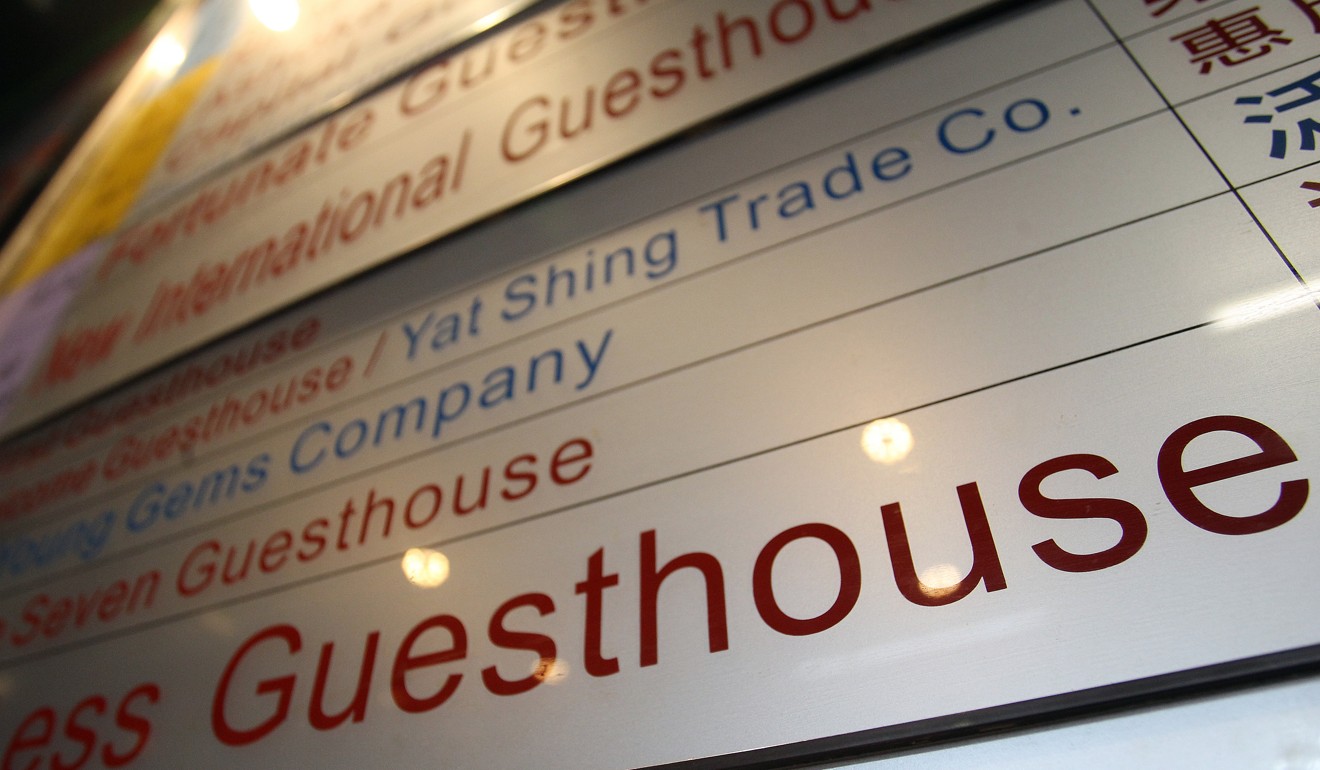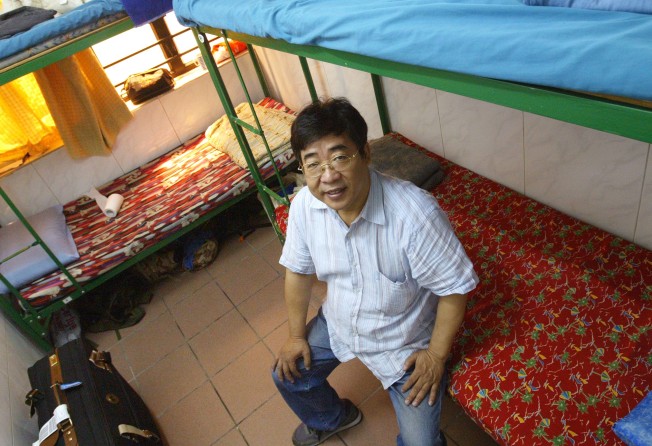
Undercover checks and police inspections sought to crack down on unlicensed guest houses in Hong Kong
Tourist Guest Houses Federation chairman says decoy lodgers are needed, otherwise operators can choose not to open doors or have visitors pretend to be long-term guests

The government needs to increase undercover checks on unlicensed guest houses if it intends to tackle the problem of illegal accommodation head-on, an organisation representing licensed operators in the city said on Thursday morning.
Tourist Guest Houses Federation chairman Sam Lau Kung-shing also called for late-night police inspections.
That came a day after the Audit Commission urged the licensing authority to get tough on illegal hostels. The number of suspected unlicensed establishments has doubled to 1,322 in the past five years.
“Most of the time inspections are done during the daytime and sometimes at night, but operators can just choose not to open their doors during the day, and even if they do, anyone knows how to put on a show or say they’re here for a long-term home stay,” Lau said on a radio programme.
“If the government is really serious about tackling the problem, it should have police carry out inspections late at night or have staff book a room to stay as lodgers,” he said.
Operators who run guest houses and hotels have to get a licence from the Home Affairs Department and comply with building structure and fire safety standards. Running an unlicensed hostel is a crime, with a penalty capped at a HK$20,000 fine and two months in jail.
Staff from the Office of the Licensing Authority, under the Home Affairs Department, carry out regular inspections as well as checks in response to complaints from the public.
So-called decoy operations – in which a worker from the authority books a room under the guise of a paying guest – have been conducted, but usually only after circumstantial evidence such as guest house signboards and advertising posters has been collected.

The licensing office conducted 13,574 inspections last year, but only 158 prosecutions were instigated, according to the Audit Commission.
Inspections had already doubled from 6,791 in 2012 as part of government efforts to clamp down on illegal hostels, but prosecution numbers have stayed at a similar level.
The commission’s report said the government was not using effective measures, such as decoy operations, as more unlicensed establishments take bookings online and do not serve walk-in lodgers or have advertisements in the hostel’s building.
In one case cited in the report, an enforcement team visited a website advertising a suspected illegal establishment five times in five months in response to a complaint. The website did not provide the full address of the hostel.
There was no response from the operator after staff made inquiries about vacancies, and staff did not make any bookings for decoy operations.
One of the major reasons for the low prosecution rate is that hostel guests are unwilling to testify as witnesses in court.
The government is seeking to amend the Hotel and Guesthouse Accommodation Ordinance next year to allow admission of circumstantial evidence in cases. It is also hoping that enforcement officers will be allowed to apply for a warrant to enter any suspected unlicensed hostel for inspection, breaking in if necessary.